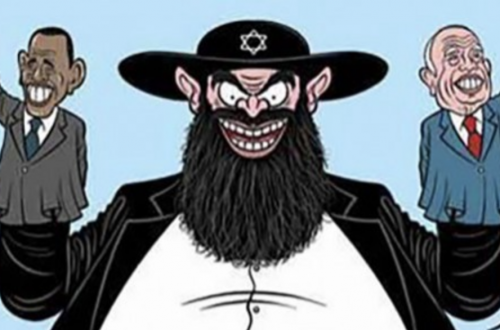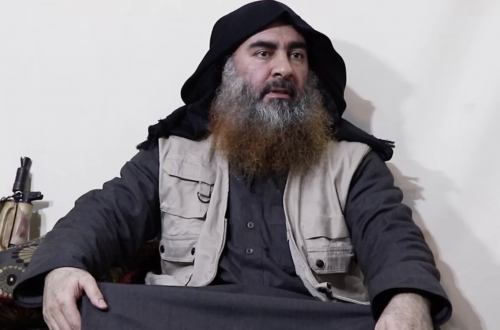This is a cross-post from Paul Murad
The recent cartoon controversy, in which a group of reactionary Muslims demanded punitive action against a secular Muslim for stating he was not offended by a cartoon depicting Muhammad, revealed a great deal about the state of Britain’s Muslim communities. The secular Muslim in question, Maajid Nawaz, is the director of a counter-extremism think tank called the Quilliam Foundation. In a series of candid admissions, many of these Muslims admitted that much of the vitriol directed against Maajid during the cartoon affair was directly inspired by frustration with and hatred for Quilliam, rather than the cartoons themselves.
On the surface this all seems very odd. After all, why would a large group of British Muslims oppose an organisation that seeks to counter extremism and promote liberal and secular values, especially since we are often reminded how the vast majority of British Muslims are moderate and peace loving? Furthermore, why would they hold such a strong grudge against an organisation that is merely expressing an alternative view? To fully understand this sorry state of affairs a more detailed discussion about trends within British Muslim communities is necessary.
Firstly, instead of relying on a moderate vs. extremist dichotomy we should talk of a secular vs. non-secular dichotomy. The term ‘moderate’ is, after all, relative and individuals that merely oppose terrorism often define themselves as such. In truth there are, on one hand, Muslims who uphold the notion that the state should be neutral as far as faith is concerned and faith should not influence or shape public policies. On the other hand, there are Muslims who believe Islam should inform, or even dictate public policy. These Muslims reject secularism outright and view it as a direct threat to their faith.
Secondly, amongst this latter group of Muslims there is an activist hub of individuals and organisations that are busy encouraging Muslims to become more overtly devout and adopt Islam as an identity marker rather than just a faith. This means they see Islam as the first and only aspect of their identity that matters and they seek to engage socially and politically as a homogenous bloc of Muslims. This activist hub seeks to dominate the debate about Islam and Muslim related issues in the UK, offering a narrow and static range of opinions. Elements within the activist hub also view themselves as the only ones capable of representing Britain’s 2.5 million Muslims and, in order to give themselves credence, they seek to present their opinions as representative of British Muslims at large.
Within this activist hub there a numerous of strands that vary in terms of how conservative they are and the exact extent to which Islam should inform the political domain. However, they are united in that they adopt an essentialised Muslim identity which allows them to view every issue through the lens of ‘how does this benefit the interests of Islam and Muslims?’ The interests of Islam and Muslims is, of course, narrowly defined as promoting Islam as the perfect faith that is largely blameless of the many problematic issues that Muslims are often associated with. Thus, terrorism is attributed to western foreign policy, honour killings and forced marriages to variants of Eastern culture, misogyny to tragic misunderstandings of Islamic scripture and the general lack of achievement amongst Muslims to failed social policies.
In short, nothing is the fault of certain interpretations of Islam and any attempt to explore the role conceptions of Islam may have played in any of these issues is resisted with accusations of racism and Islamophobia. With the protection of Islam’s image being the top priority, we find that important issues that should be addressed are often ignored whilst other seemingly irrelevant issues are given undue importance. There is a pre-fabricated script and only issues that conform to the narrative within the script are given attention. This explains why an innocuous cartoon receives so much attention whilst issues such as forced-marriages, FGM, rampant homophobia and anti-Semitism within Muslim communities are largely ignored.
In intellectual terms, the arguments of the activist hub are very weak and they cannot stand up on their own merit in the court of public opinion. Thus, the only way to make them immune from the inevitable criticism that they attract is to claim they are the views of 2.5 million British Muslims who all sing from the same hymn sheet on a wide range of social and political issues. This experiment in mass conformity and offering a false consensus can only succeed if dissenting voices are stifled and bullied into silence.
Since the launch of the Quilliam Foundation in 2008, a new and dissenting voice was added to the mix and given prominence by frequent media appearances. All of a sudden the united front and ideological consensus that the activist hub had sought to manufacture and project was under threat. By challenging the narrative of the activist hub, Quilliam made life difficult and opened up debates that were simply too uncomfortable. In particular, it became much more difficult to brush extremism under the carpet and pretend it was merely the symptom of aggressive western foreign policy.
By pointing to the ideological component of Islamist extremism and jihadism, Quilliam was taking the ground from those who sought to utilise fears of extremism to score ideological points against political rivals. It should, therefore, come as no surprise that Quilliam quickly began to attract enemies both within the activist hub and amongst section of the left who felt that their simplistic critique and analysis of western foreign policy was under siege. Nuance had become the enemy and a nuanced analysis was no longer welcome, especially when it upset an alliance of convenience forged by the enemies of western capitalism.
The fight back against Quilliam began with a series of accusations that only served to reinforce the notion that the activist hub was completely out of touch with reality. At first there were revelations about the private life of Maajid, which showed that he perhaps was not a devout or observant Muslim. Then the fact that Quilliam has received a government grant was used to dismiss their work as being self-serving. After that, they were accused of being unrepresentative of British Muslim opinion and deeply unpopular amongst many Muslims. Finally, they were accused of smearing and stifling the representatives of British Islam, i.e. the activist hub, and as such, a smokescreen used by the enemies of Islam to destroy it from within.
Quilliam never claimed to be an Islamic organisation out to promote an austere Islamic lifestyle, thus the lifestyles and piety of individual members are completely irrelevant. Quilliam also never claimed to be representative of British Muslim opinion. In fact, quite to the contrary, Quilliam sought to change the paradigm and provide a fresh perspective to the debate. Government grant allegations, whilst true, simply revealed the disingenuous nature of the activist hub since many of them had also applied for such grants and the third sector in general is rife with this kind of funding.
The fact that Quilliam did become a prominent voice that exposed the poorly disguised agendas of many organisations within the activist hub did decrease the influence and reach of such organisations. In fact, many of these organisations were, and still are, engaged in barely concealed double-speak that helps fuel anti-Muslim elements. Furthermore, since, in their view, their agenda is synonymous with the interests of Islam, as defined by them, Quilliam’s presence was viewed as an assault on Islam itself. Hence, their ability to represent and protect Islam, from the hordes of secular liberals at its gates, had been undermined. A crime that was simply unforgivable.
In truth, the abuse and threats Maajid received following his tweeting an opinion about a benign cartoon, had very little to do with a cartoon and everything to do with the fact that Quilliam had injected the British Muslim scene with a dosage of pluralism that was unwelcome in a sphere that celebrates mass conformity and single-mindedness. In promoting a plurality of perspectives and defending secularism and liberal values, Quilliam showed the activist hub up for what it really was – a collection of out of touch, dishonest, intellectually retarded bullies that did not have the stomach for a real fight. No longer could they hide behind the representative game in order to peddle their agenda. No longer could they resist reform with accusations of racism and cultural insensitivity. They had to face reality and they did not like what they saw.
In spite of Quilliams’ brave efforts, the activist hub still manages to dominate the British Muslim scene, whilst their denialist and dishonest narrative is still popular amongst many young Muslims. However, a new wave of liberal, secular, reformist Muslims, non-Muslims, and even ex-Muslims, is slowly emerging. The activist hub feels threatened and it doesn’t really know how to respond. Discussion and debate has never been its strong point but it certainly knows how to maintain a monopoly over intimidation and violent threats.
With global jihadist violence spiralling out of control and certain regressive practises within Muslim communities now being discussed out in the open, it is becoming increasingly difficult for the activist hub to defend their narrative in public. As far as any real debate is concerned they have already conceded defeat, what remains is the occasional opportunity to lash out at individuals that have facilitated their demise. A tweet and an innocuous cartoon have exposed a battle that has been waging in Britain Muslim communities for the past six years and is set to continue for many more.


